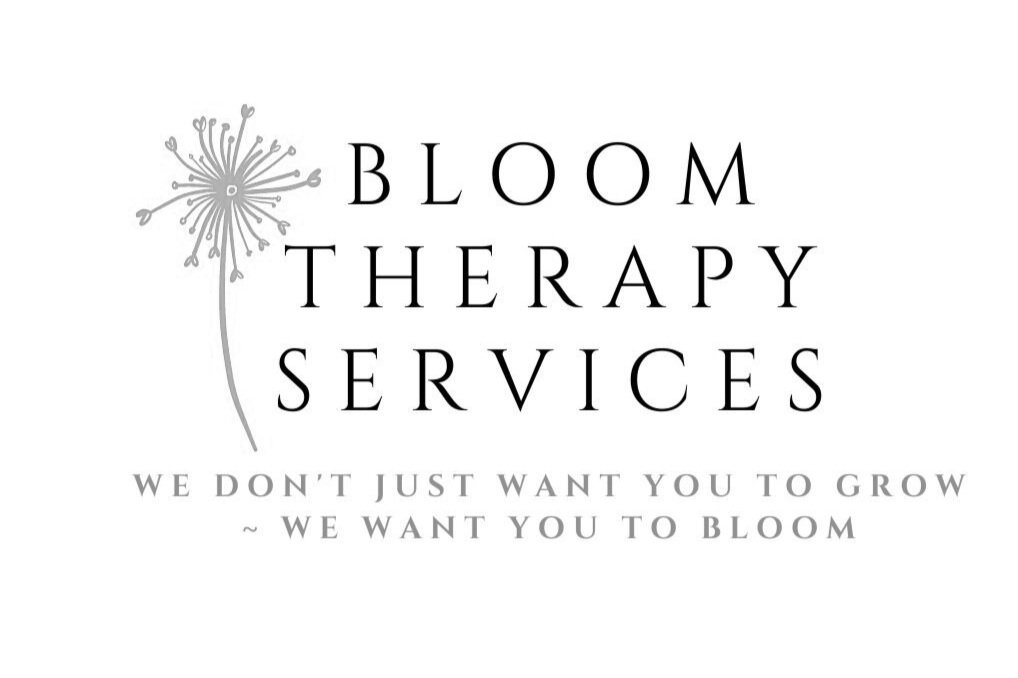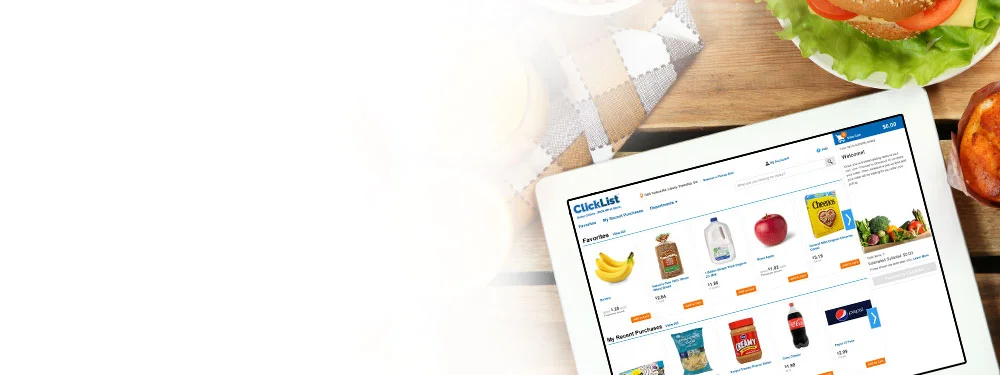Intuitive Eating for the Holidays
The holiday season has long been known to be a time of tradition. Many special traditions involve family, friends and celebration, but even more revolve food. For someone struggling with problematic eating, food addiction, attempting to lose weight or change eating habits, the holiday season can be an especially difficult time.
The holiday season has long been known to be a time of tradition. Many special traditions involve family, friends and celebration, but even more involve food. For someone struggling with problematic eating, food addiction, attempting to lose weight or change eating habits, the holiday season can be an especially difficult time. Events that should evoke emotions of fun and celebration, are often met with dread and anxiety by those that feel they may lose control.
During this holiday season, stop the diet and try a new and different approach to managing eating behaviors.
1. Correct Distortional Thinking - Distortional thoughts are beliefs we have which only bring us back to a place we don't want to be. Thoughts like: It's just one time a year.... I'll start my diet for the New Year.... This is the ONLY time I can enjoy Pumpkin Spiced Lattes, so better drink as many as I can! Having these types of thoughts creep into your mind can easily derail you from your bigger goals of attempting to be healthier and not binge or overeat. To combat these thoughts, we work on a strategy called Thought Stopping.
2. Minimize and Manage Stress Levels - Stress is often the emotion that tends to send us into a tail-spin of making poor choices for our health and well being. When we're stressed, we feel out of control, rushed in our routine and like we just can't handle ONE MORE THING. When we feel overwhelmed during the holidays, we tend to control the things in our life that demand the most attention - busy Christmas shopping, scheduling ALL the events, traveling here, there and everywhere, juggling stretched budgets and still trying to take care of LIFE. The problem is, when we're trying to stay in control of everything else, we tend to slack on other areas -- unfortunately that's usually ourselves. Self-care and taking time out for ourselves is the thing we put LAST when everything else is crazy. Sometimes, this translates into our health goals, managing our binge eating behaviors or saying TO HECK WITH IT in working on making healthy changes.
3. Plan Ahead - Having a plan about how you're going to manage difficult situations can be one of the single, best ways to prevent a binge episode. Having a plan doesn't mean you won't experience cravings or urges to binge, but it does mean you'll be better equipped on how to respond to cravings.
4. Support System - Have you ever tried to manage your disordered eating issues during the holidays ONLY to be met with all your family members bombarding you with triggering statements and judgments. Do you really think you need to go back for seconds? I'm only eating the vegetables this year because I'm trying to watch my weight. Phrases such as these can be particularly difficult for those with disordered eating issues. Many people don't understand the difficulty in trying to maintain these changes, ESPECIALLY when there is an abundance of food. Eliciting a support system which understands the difficulties you may face may be most helpful in making changes for your eating behaviors during the holiday season. Explain to your friends or family members your goals and ask them to support you. In the Happy Healthy Holiday program, we will be discussing specific dialogue and examples you can use with your family to help them understand.
5. Focus on the Reason for the Season - From Halloween to Valentines Day, it may seem like there is one celebration after another featuring food. So many times we put ample focus on the food at each of these gatherings. For those with disordered eating issues, the food focus may be even more heightened. This glamorizing of food tends to blind us from other important parts of the holiday season - friends, family, tradition and celebration. It might be helpful to remind yourself that although Grandma's Apple Pie may be very special because you can only enjoy it once a year, it's likely many of the other foods can be made anytime throughout the year. Focus on the real reason for the season and take the glorification out of the food.
Do you need help with addressing these areas?
In the Happy Healthy Holidays Support Group we will be addressing ALL of these issues and more. If you're the person that has made progress towards goals and you're TERRIFIED you might relapse during the holidays -- then this group is for YOU. If you're wondering how you can possibly enjoy food, when you constantly feel like food is the enemy -- then this group is for YOU. If you find that you are constantly stressed to the max during the holidays, which in turn, leads to eating ALL the holiday cookies -- then this program is for you.
Program Begins on November 11th.
FOLLOW ME ON INSTAGRAM
Why is food addictive?
Many people will consume food everyday and never have a problem with doing so. However, for the person that has problematic eating behaviors, food addictive patterns or emotional issues, it can be much more difficult to control and limit foods.
Why are some foods "addictive"?
Many people will consume food everyday and never have a problem with doing so. However, for the person that has problematic eating behaviors, food addictive patterns or emotional issues, it can be much more difficult to control and limit foods. This is as much a physical as it is a psychological problem. Overeating or disordered eating patterns are most likely a way for a person to cope with negative emotions when they don't otherwise know how to healthfully. Couple that with the physiological response of triggering reward and pleasure centers in the brain and the release of dopamine, then you have someone that is having an experience with food equivalent to someone who takes a hit from heroin.
What is added to foods that makes us keep on eating/wanting more?
Sugar! And I'm not talking about the natural sugars found in fruits and natural sweeteners, such as honey. Sugar is in almost everything we eat, especially processed foods we may not even realize. Several years ago, back in the 80's and into the 90's, the health and food industry began pushing us to eat a fat-free diet because they thought too much fat in our food was the problem with obesity. However, foods without fat tend to taste like cardboard. So what did they replace it with? You guessed it - SUGAR!
I have worked with addicted substance abuse clients and also people suffering from "food addictive" behaviors and there are SO MANY similarities. One research study demonstrated how when an individual consumes sugar, the reward centers in their brain light up the SAME WAY they do for someone that uses drugs. And since our diet has a constant supply of sugar in everything from bread to even the meats we eat, we are on a constant sugar high. Everyone knows what a drug addict goes through when they go "cold turkey" and through withdrawal. So, just imagine what it would be like if you suddenly cut out all sugar from your diet?
Why can't we "just eat one"?
Why can't an alcoholic have just one drink? To be fair, many individuals can manage their diet just fine and can eat in moderation, consuming highly palatable foods and then stopping when they're full or feel as if they're satisfied. For someone struggling with emotional issues and food addictive tendencies, it may be more difficult for them to ever feel satisfied. Addiction is not the problem, but is usually a SYMPTOM of some deeper issue a person has. Initially, consuming the food felt really good! The food tasted good, smelled good and created a physiological response in the body and mind to release dopamine, endorphins and to alert the reward centers of the brain. This may even be amplified for some types of foods containing sugar because sugar can be as addictive as cocaine. Because this person now knows that food created "feel good" emotions, they may be more likely to turn to food again in the future to cope with negative emotions. Over time, this becomes a conditioned response, that is, a "go-to" response in times of stress or other negative emotions. Many people can't "eat just one" until they figure out ways to cope healthfully, manage their cravings and urges and perhaps distance themselves away from foods which may trigger them.
Which foods are "addictive"?
As an addictions counselor, I will give my professional opinion in explaining that ALL foods can be addictive, just as some individuals are more at risk to become addicted to just about anything in life (internet, texting, exercise, sex, etc.). However, there is research to support there certainly are foods that are more palatable and therefore, are foods we are more likely to become addicted to. A palatable food are those foods which create the most sensations from our taste buds. It could be the flavor, texture, smell or a combination. Foods that are salty, sweet or those deemed as "comfort foods" tend to be the most offensive culprits. For example, chocolate, salty chips, desserts, pizza, etc.
MADDEN WELLNESS SERVICES
Happy Healthy Holiday Workshop Series
Have you ever made significant changes in your diet and lifestyle, only to relapse during the holidays?
What starts out as a plan to have only 1 plate of food, quickly turns into 2 and then maybe by the end of the week (and 4 holiday parties later) you've decided to completely abandon your goals.
"I'll start over for New Years."
"There's no point in trying to make changes now...what with the holidays just around the corner."
" It's just once a year."
JOIN US!
Watch the Preview!
FIND OUT ALL THE DETAILS ABOUT THIS UPCOMING PROGRAM, AS WELL AS GET ANSWERS TO ANY QUESTIONS OR CONCERNS YOU HAVE ABOUT SIGNING UP.
Have you ever made significant changes in your diet and lifestyle, only to relapse during the holidays?
What starts out as a plan to have only 1 plate of food, quickly turns into 2 and then maybe by the end of the week (and 4 holiday parties later) you've decided to completely abandon your goals.
"I'll start over for New Years."
"There's no point in trying to make changes now...what with the holidays just around the corner."
" It's just once a year."
Before you know it, you find yourself falling back into old habits, telling yourself you'll "start Monday" over and over again. The cycle continues and then it's April and you've gained back weight, abandoned your goals and given up altogether...... ALL because of the holiday season.
The holidays are a difficult time for many who struggle with food addiction and problematic eating. The food, family, parties and an endless supply of one tempting dessert after another presents a perfect storm of emotional eating cues and food triggers.
Not to mention the STRESS that comes with planning, cooking, going from one home to the other and shopping for gifts! This wonderful time of year sends some into a frenzy of stress and anxiety which, in turn, can result in emotional eating and a lack of willpower and motivation to take care of ourselves when we're having to take care of everything else!
That's why I'm launching the Happy Healthy Holiday series. In this program, we'll be taking a look at all the many factors that contribute to goal abandonment and emotional eating during the holiday season. We'll be diving into understanding how deep rooted beliefs and ideas we may have around our families and seasonal foods, may be sabotaging our progress.
Along with lots of great information during this 3 week program, you'll also have individual, personalized access for weekly consultation with myself, an Eating Disorder and Obesity Specialist. We'll be answering any questions you have about issues you're experiencing and take a deeper look at the roadblocks you may come across during the holidays.
In addition, you'll also be able to take advantage of daily/weekly accountability of your eating habits and emotional triggers through the Record Recovery app, a great tool which allows me to be able to provide you feedback in real-time.
It is my intention to teach you how to enjoy the holidays without having to worry about whether or not you'll be able to maintain or continue working on your healthy eating goals. I want you to have a Happy, Healthy Holiday Season!
Beginning October 29th
What's Included
3 LIVE Workshops
Week 1 - Christmas Time's A Comin' - Prevention and Preparation
The holidays can bring on an entire host of complicated feelings and emotions, many of which spill over into our food choices. Stress-eating, binge eating, to-heck-with-it eating.... all comes to the surface during the holiday season.
In this session, we will employ specific strategies to help you prepare healthfully for the holiday season. We will highlight researched interventions to help you prevent falling back into old habits. Skills such as Thought Stopping, Identifying Distortional Thoughts and Rational Emotive Behavior techniques will be covered. We'll discuss many of the problem scenarios that may come up and how to manage. We'll learn how to utilize these skills so that you can worry less about food and focus more on celebrating the season.
Week 2 - Celebrating Food and Family
Does it sometimes seem like your family DOESN'T want you to be successful with your diet? Does EVERYONE in your family go back for seconds during holiday parties -- and you feel obligated to also? At holiday parties, do you find that you have a "food pattern" (always eating the same foods, going back for seconds, eating the same desserts and feeling miserable after -- MAYBE eating AGAIN later in the evening)?
During the holiday season, tradition may apply to more than just celebration and unity. We'll be talking all about how family dynamics come into play with our food choices during the holiday season. Learn appropriate coping strategies so that you can stay on track with your goals and not fall into the family guilt trip pit. By the end of this session, you'll learn how to enjoy a holiday meal with your family without having to feel guilty about your food.
Week 3 - Have a Holly Jolly Emotional Basket Case Christmas
As much fun as the holidays are, they also tend to be some of the most stressful times of the entire year. Stress is one of the most significant factors in problematic eating! When we get stressed, we tend to let go of things in our life so that we can take control of others (like shopping, scheduling and finances!). Unfortunately the thing we let go of first - - is usually ourselves. Sometimes that translates to our health, goals and our eating behaviors.
In this session, learn how to cope with stress and still enjoy the holiday season. Learn effective strategies to mainstream your life in such a way to minimize stress and make willpower easier than it ever has been!
2 Informational Videos
- Thought Stopping Lesson - Learn this well-researched skill to stop negative thoughts in their tracks and keep you from derailing from your goals.
- Holiday Food Triggers - Identifying your triggers related to the holiday season and effective ways to overcome cravings and urges.
Weekly Food Log Accountability
Using the Record Recovery Dietitian app, you'll record your food intake each week. I'll be able to see your entries, provide real-time feedback and support via the app. Click here for more information.
Weekly Personal Coaching Calls
With Amber Madden, Eating Disorder & Obesity Specialist. (15 minutes per call)
Each week I'll speak with you over the phone, through the email or face-to-face via online to answer your questions and provide customized support.
Weekly Lesson Plan
Each week, you'll receive a Lesson Plan straight to your Inbox detailing exactly what to do in the course for the given week. In addition, you'll receive helpful handouts, additional reading and resources and Action Challenges to help you implement the week's lesson.
Progressive Muscle Relaxation Session
(to help with stress and anxiety through the holiday season.) A proven technique to help you with staying calm during this holiday season. What is PMR?
Bonus!
- Goal Setting Course from Joyful Eating program. Learn why Losing Weight is the worst New Year's Resolution, and what to do instead!
- Free Digital Download of 25 Healthy Hacks from an ED Specialist
- Option to EXTEND your Personal Coaching Sessions and Record Recovery tracking through the entire holiday season for a discounted rate of $15 per week.
- Weekly Giveaways, including fresh meal deliveries from Blue Apron, Home Chef and Hello Fresh; free subscription to Eating Well Magazine and a set of Meal Prepster containers!
- Free 7 day trial to the Madden Wellness Membership (launching soon!). Like the membership? You'll also receive the option to signup for an entire year at half price! Click here to learn more.
- And much more!
Join Us!
Begins October 29th - Early Bird Rate of $55 ends October 2nd
Click here for the FREE 7 Steps to Stress-Free Meal Planning Guide!
Amber Madden is a Licensed Counseling Associate specializing in Eating Disorders and Obesity. She is the Clinical Director at Madden Wellness Counseling, PLLC. She utilizes her skills in addiction to assist her clients in with Binge Eating, "food addictive" patterns, and develop a positive approach to overall health and wellness. She has a passion for assisting clients in achieving their health goals and learning to love nutritious foods and exercise. For more information visit www.maddenwellnessky.com .
MORE MADDEN WELLNESS SERVICES
FOLLOW ME ON INSTAGRAM
How Do I Handle My Binge Eating?
This question describes a very typical setup of what is called the Binge, Repent, Repeat cycle. This means that typically after you binge, you experience emotions as you described "shame and disappointment" and then because of these emotions you "repent" (i.e. vow to never binge again, promise to "do better," go to the gym, etc.) and then ultimately end up bingeing again.
Hello,
This question describes a very typical setup of what is called the Binge, Repent, Repeat cycle. This means that typically after you binge, you experience emotions as you described "shame and disappointment" and then because of these emotions you "repent" (i.e. vow to never binge again, promise to "do better," go to the gym, etc.) and then ultimately end up bingeing again.
There are many coping mechanisms for binge eating and one of the best is actually attempting to NORMALIZE eating. Meaning you need to attempt to eat normally, eating appropriately portioned meals 3 times a day, with snacks in between. IF you binge, then it may be helpful to remind yourself that when you attempt to compensate for your bingeing behaviors, and you end up feeling restricted from over exercising or undereating, then this actually leads to a binge again. Thus, reverting you back to the cycle. If you binge, it will be helpful to try and get back on a normal schedule of eating instead of trying to compensate for the binge. Although it may feel counterproductive, getting back on a normal eating schedule will prevent you from entering into the restrictive cycle.
It can also be helpful to remind yourself that the binge has already occurred, it is in the past and the goal is to move forward without focusing on the past. Focus on what you can do differently next time. What emotions or situations led up to the binge? What can you to do prevent or change the circumstances that led to the binge, or the way that you handled the situation?
Lastly, if you're struggling with "normalizing" eating, it can be helpful to work with a professional that can provide counseling and coaching to help you learn how to eating normally, mindfully and without feeling the guilt and other harmful emotions sometimes associated with disordered eating. I would be more than happy to assist you if you ever have any questions or want to reach out to somebody. You can contact me via my website: http://www.maddenwellnessky.com/ .
This question was submitted via Counselchat.com, an online, free mental health platform. Their mission statement: "We believe mental health is just as important as physical health. We're on a mission to bring therapy - a safe, effective, and clinically proven treatment - to everyone." If you would like to submit your own question for consideration in being answered on the blog, you can do so through my Counselchat profile page.
The information above is intended as general information based on minimal information, and does not constitute health care advice. This information does not constitute communication with a counselor/therapist nor does it create a therapist-client relationship nor any of the privileges that relationship may provide. If you are currently feeling suicidal or are in crisis, call 911 or proceed to your local emergency room.
MORE MADDEN WELLNESS SERVICES
FOLLOW ME ON INSTAGRAM







































